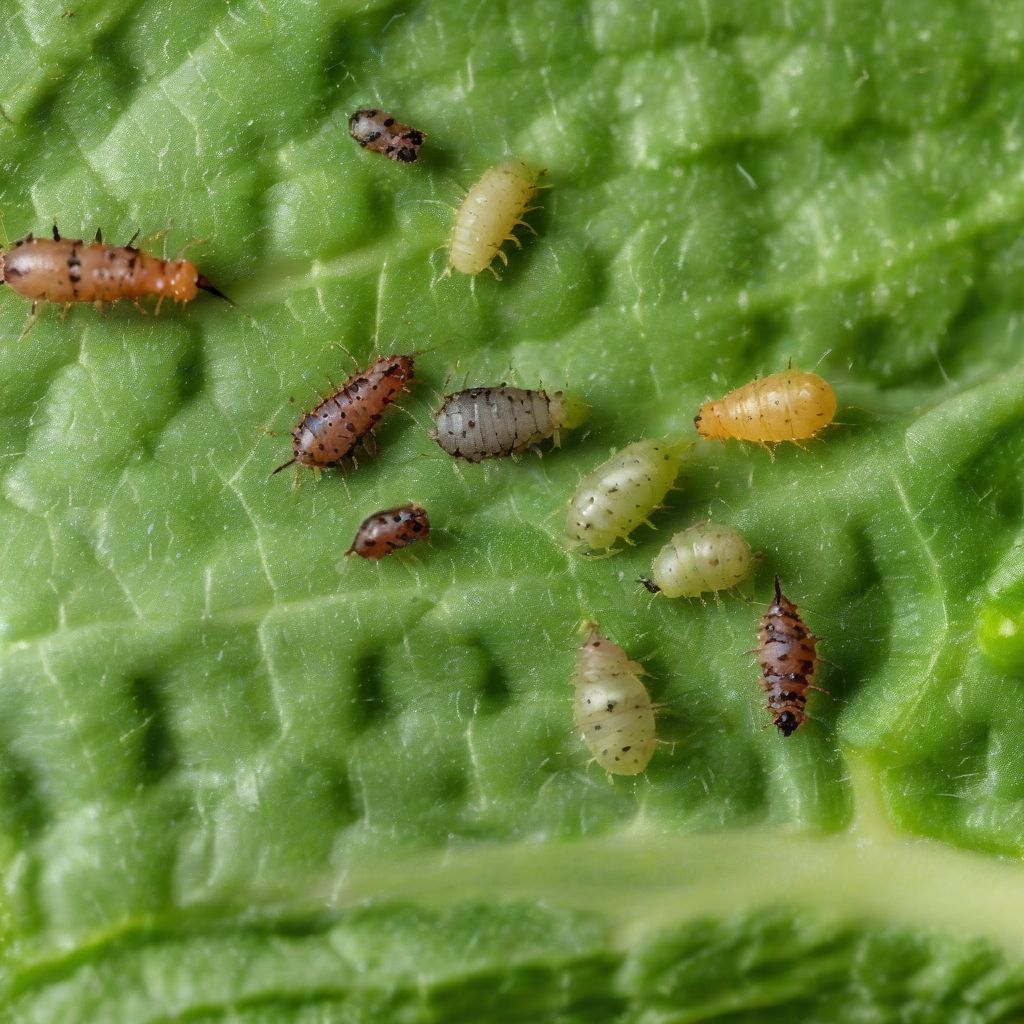As a nutritionist and meal prep coach, I’m passionate about healthy eating—not just for people, but for plants too! Just like us, our leafy friends thrive when protected from harmful invaders. Whether you’re nurturing a windowsill herb garden or a balcony veggie patch, city living doesn’t have to mean sacrificing pest-free produce. Let’s dig into some natural, effective ways to keep your urban garden thriving!
Understanding Urban Garden Pests
Before waging war, it’s wise to know your enemy. Urban gardens often fall prey to common culprits like:
- Aphids: These tiny, sap-sucking insects come in various colors and can quickly multiply, distorting plant growth.
- Slugs and Snails: These slimy critters leave tell-tale holes in leaves and enjoy feasting on tender seedlings.
- Whiteflies: These small, winged insects gather on the undersides of leaves, weakening plants and potentially spreading diseases.
- Caterpillars: These hungry larvae can munch through foliage rapidly, leaving behind chewed leaves and stunted plant growth.
 Urban Garden Pests
Urban Garden Pests
Natural Pest Control Methods: A Holistic Approach
Just as we prioritize wholesome ingredients, let’s choose natural pest control methods that protect both our plants and the environment.
1. Companion Planting for Pest Prevention
Nature offers elegant solutions! Companion planting involves strategically placing different plants together to deter pests, attract beneficial insects, and even improve growth.
- Marigolds: These cheerful blooms repel aphids, whiteflies, and even nematodes in the soil. Plant them around your vegetable patch for vibrant protection.
- Basil: This aromatic herb not only flavors our dishes but also deters tomato hornworms, mosquitoes, and flies.
- Chives: These pungent herbs deter aphids and Japanese beetles while attracting pollinators like bees.
2. Physical Barriers for Extra Defense
Sometimes, a physical barrier is the best defense.
- Netting: Fine netting draped over vulnerable plants creates a physical barrier against flying insects like butterflies and moths, preventing them from laying eggs that hatch into hungry caterpillars.
- Copper Tape: Create a shiny, sticky barrier around pots or raised beds with copper tape. Slugs and snails detest crawling over this irritating surface.
- Diatomaceous Earth: This natural powder, made from fossilized algae, is abrasive to soft-bodied insects like slugs and snails. Sprinkle it around the base of plants to deter these pests.
3. Homemade Sprays for Targeted Control
When pests do strike, reach for these natural, homemade remedies.
- Neem Oil Spray: Neem oil, derived from the neem tree, disrupts insect hormones, deterring feeding and reproduction. Mix a few teaspoons of neem oil with water and a drop of dish soap (as an emulsifier) and spray on affected plants.
- Garlic Spray: Garlic’s pungent aroma repels many insects. Blend a few cloves of garlic with water, strain, and spray on plants to deter aphids, whiteflies, and other soft-bodied pests.
- Soap Spray: A simple solution of mild dish soap and water can help control aphids and other soft-bodied insects by disrupting their cell membranes.
4. Healthy Soil, Healthy Plants
Building a resilient garden starts with the foundation: healthy soil! Rich, fertile soil supports strong plant growth, making them less susceptible to pest damage.
- Compost: Add nutrient-rich compost to your soil to improve its structure, water retention, and beneficial microbial activity.
- Mulch: A layer of organic mulch, like straw or wood chips, helps suppress weeds, retain moisture, and regulate soil temperature—creating a less hospitable environment for pests.
5. Attracting Beneficial Insects: Your Tiny Allies
Invite nature’s pest control team to your urban oasis! Beneficial insects, like ladybugs, lacewings, and praying mantises, are voracious predators of common garden pests.
- Plant Flowers: Attract beneficial insects with nectar-rich flowers like cosmos, zinnias, and sunflowers.
- Provide Water Sources: A shallow dish of water with pebbles for landing spots can quench the thirst of these helpful creatures.
Prevention: Your Best Defense
Just as preventive healthcare keeps us healthy, a proactive approach is key to minimizing pest problems in your urban garden.
- Inspect Regularly: Regularly check your plants for any signs of pest damage or infestations. Early detection is crucial for effective control.
- Rotate Crops: Avoid planting the same crops in the same spot year after year. Crop rotation helps prevent the buildup of pests and diseases specific to certain plants.
- Choose Resistant Varieties: When selecting plants, opt for pest-resistant varieties whenever possible.
Conclusion: Cultivating a Thriving Urban Oasis
Protecting your urban garden from pests doesn’t have to involve harsh chemicals. By embracing natural methods, you can cultivate a healthy, productive garden that nourishes both body and soul. Remember, a little prevention, observation, and natural intervention can go a long way in keeping your urban oasis thriving! Now, go forth and grow!
What are your favorite natural pest control methods for your urban garden? Share your tips and tricks in the comments below!
[amazon bestseller=”gardening”]
